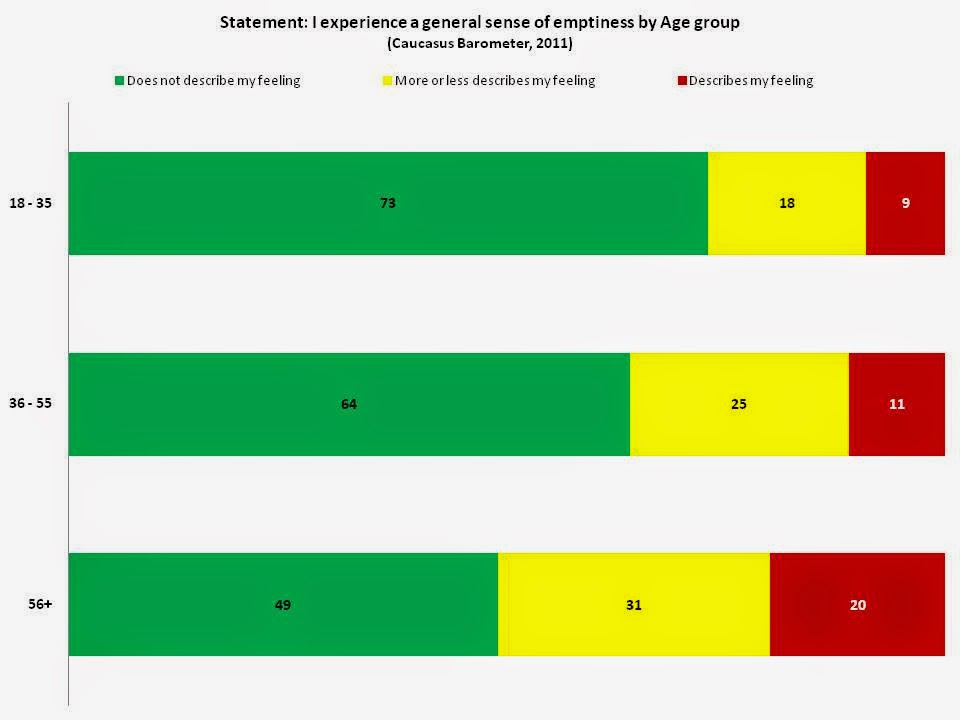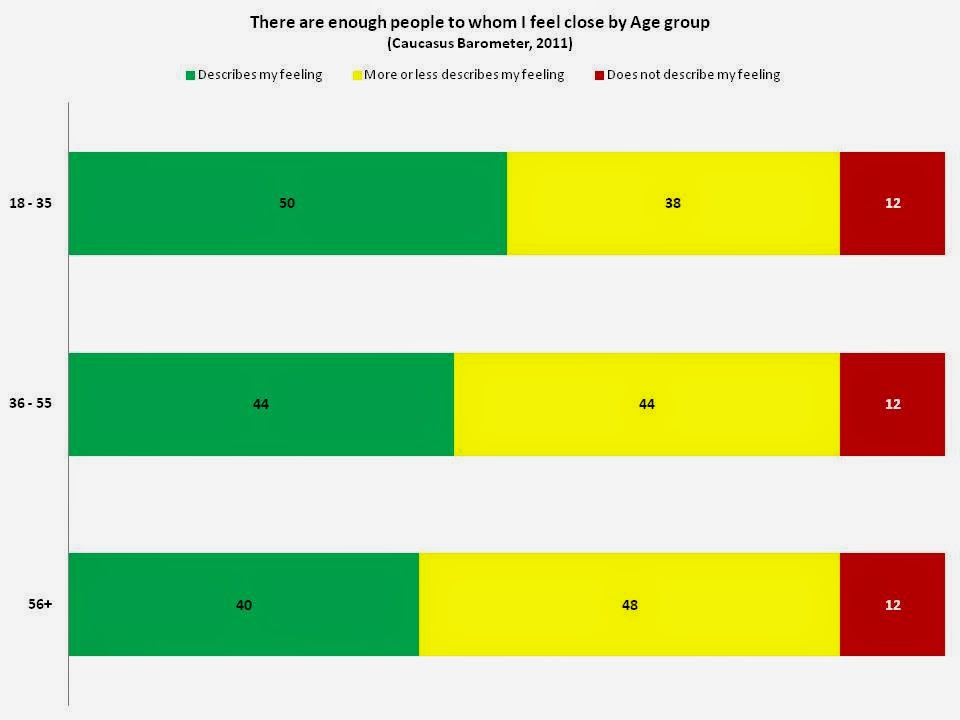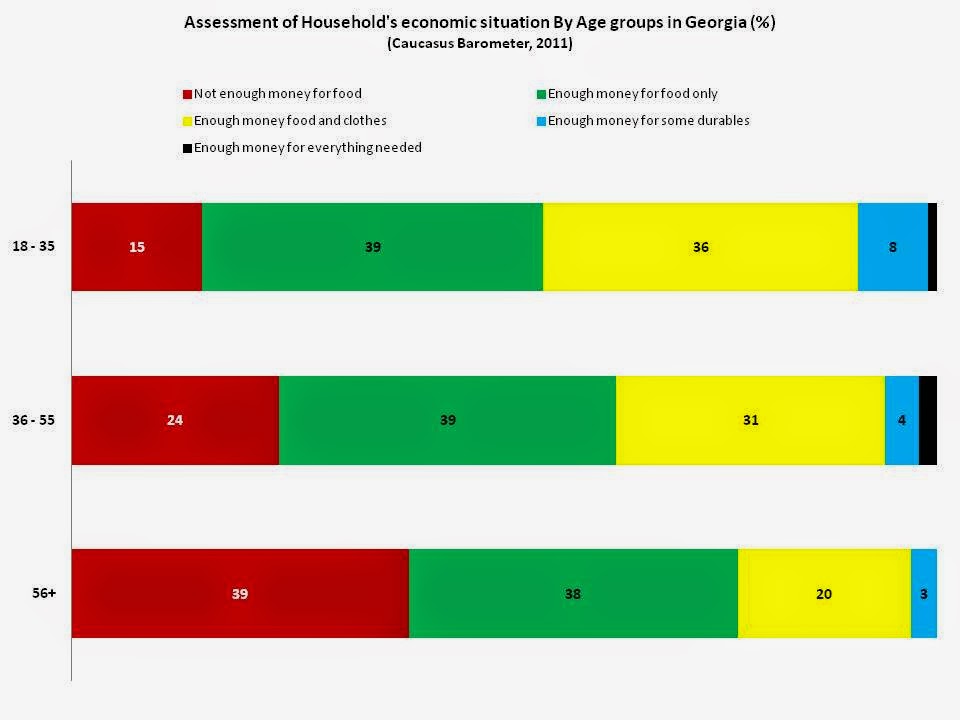The following chart shows that 40% of Georgians, 56 and older felt that there were enough people to whom they felt close, and 49% who more or less thought that there were enough people close to them. Only 12% rejected the idea of having a sufficient amount of close people around. However, it is also worth mentioning that exactly the same percentage (12% for each) of individuals was present in the other two younger age groups (18-35 and 36-55) who also turned down the idea (‘there are enough people to whom I feel close’).
According to survey results, a sense of emptiness (20%) and loneliness (12%) among Georgia’s elderly population is not high. One of the explanations of this tendency could be that in Georgia it is common for elderly people to continue living with their children and grandchildren. This likely gives them the opportunity to stay actively engaged in family life through taking care of grandchildren, helping other family members with running the household, as well as being taken care of whenever necessary.
This way of living gives a smaller place to thoughts of being unwanted or useless, lonely or depressed and can be considered as an alternative to some common recommendations doctors give in scope of organizing manner of living for aged people according to Amutha Kannan.
If problems are not very visible for the aged population in Georgia (from a social perspective), their economic state gives a significantly different picture. According to the CB 2011 survey results, 40% of elderly people (56+) in Georgia reported living in poor economic conditions not having enough money for food in the household. Younger Georgians, by comparison, attested to living in similar poor economic conditions and not having enough money for food in the household (24% of the 36- 55 age group and 15% of the 18 – 35 age group).
This blog post reviewed factors that negatively affect the elderly’s mental health in Georgia. Hence, in comparison to social settings for older people in Georgia, their economic conditions can be considered a serious challenge to remain physically and mentally healthy. To further explore this subject and other issues influencing aging people’s health in Georgia, we recommend exploring our data using the ODA tool here.















